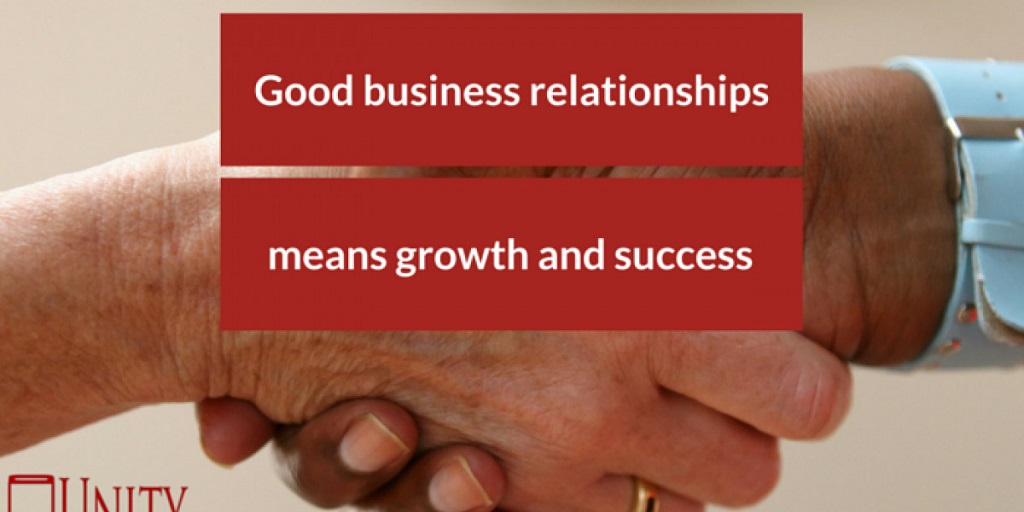Building and maintaining successful business relationships is a cornerstone of any thriving enterprise. These relationships form the foundation for growth, collaboration, and long-term success. In this article, we’ll explore the key elements that contribute to a strong and effective business relationship, delving into the nuances that set exceptional partnerships apart from the rest. This content is brought to you by Ehsaaan.com.
The Essence of Trust
Trust forms the bedrock of every thriving business relationship. Similar to a meticulously designed bridge, trust serves as the vital link that binds enterprises, facilitating smooth communication and collaboration. Absence of trust can give rise to misunderstandings, causing even minor obstacles to appear unconquerable. The process of cultivating trust encompasses candid and transparent communication, while abiding by commitments, akin to the essential elements of the Formula for Operating Cash Flow EBIT, which underscores a business’s financial health.
Communication: The Glue that Binds
Clear and effective communication is the glue that binds businesses together. It’s not just about relaying information, but about truly understanding one another. Active listening and articulating ideas concisely are essential in preventing misinterpretation and fostering a deeper connection. Regular check-ins and updates can bridge geographical gaps and keep all parties aligned. Dive deeper into business relationships.
Shared Goals and Values
Business relationships are strengthened when all parties share common goals and values. A sense of shared purpose brings synergy and alignment to collaborations. Just as two gears work in tandem to move a machine forward, aligned objectives enable businesses to achieve remarkable outcomes together. It’s essential to clearly define these objectives from the outset to avoid confusion or misdirection.
Mutual Respect and Empathy
Respect and empathy are vital ingredients in the recipe for a successful business relationship. Understanding and valuing each other’s perspectives create an environment where both parties feel valued and heard. By putting oneself in the shoes of others, businesses can anticipate needs and challenges, leading to proactive solutions and an even stronger connection.
Delivering Consistent Quality
Consistency is the cornerstone of trust. Businesses that consistently deliver quality products and services build a reputation that partners can rely on. Just as a stream carves a path through rock over time, consistent efforts chip away at doubt and uncertainty, leaving behind a trail of reliability and confidence.
Navigating Challenges Together
No relationship is without its challenges. In the business world, unforeseen obstacles can arise, threatening even the strongest partnerships. However, how these challenges are approached can determine the fate of the relationship. Facing difficulties head-on, offering support, and working collaboratively to find solutions can deepen the bond and pave the way for future successes.
Flexibility and Adaptability
The business landscape is ever-evolving, and the ability to adapt is crucial. A good business relationship thrives when all parties demonstrate flexibility and a willingness to pivot. Like a tree bending with the wind to avoid snapping, businesses that adapt to changing circumstances can weather storms and emerge stronger than before.
Celebrating Successes
Just as challenges are a part of business, so are successes. Celebrating achievements, whether big or small, fosters a sense of camaraderie and shared accomplishment. Acknowledging and rejoicing in milestones reminds partners of what they can achieve together, motivating them to aim even higher in the future.
The Power of Innovation
Innovation is the spark that keeps a business relationship vibrant. By continually seeking new ways to create value and improve processes, partners can stay ahead of the curve. Innovation is like a compass, guiding businesses toward uncharted territories of growth and creativity.
Conclusion
In the dynamic world of business, a good relationship is a prized asset that can significantly impact success. Trust, communication, shared values, and adaptability all play pivotal roles in nurturing these relationships. Just as a craftsman hones their skills over time, businesses that invest in building and maintaining strong partnerships reap the rewards of collaboration, growth, and lasting success.
FAQs
Q: How can I establish trust with a new business partner?
A: Trust is built over time through consistent communication, transparency, and delivering on commitments.
Q: What should I do if conflicts arise in a business relationship?
A: Address conflicts openly and work together to find mutually beneficial solutions, focusing on the bigger picture.
Q: Can a successful business relationship survive without shared values?
A: While shared values enhance collaboration, open communication and respect can bridge gaps between differing values.
Q: How do I foster innovation within a business partnership?
A: Encourage brainstorming, embrace new ideas, and create an environment where experimentation is encouraged.
Q: Is celebrating small successes as important as acknowledging major milestones?
A: Yes, celebrating small successes fosters a positive atmosphere and reinforces a culture of achievement and growth.


